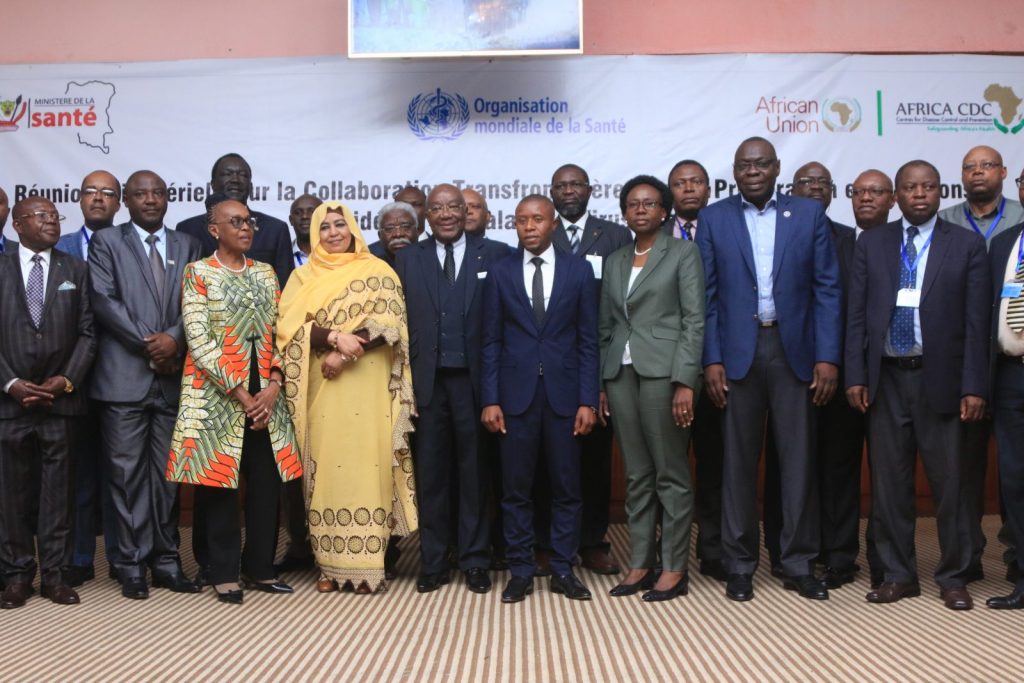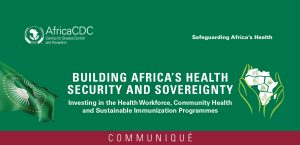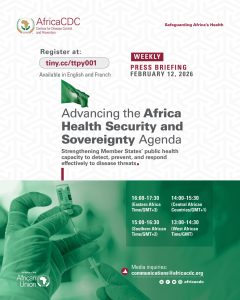We, the Ministers of Health and senior immigration officials of the Democratic Republic of the Congo (DRC) and the nine neighboring countries to the DRC, met on 21 October 2019 in Goma the DRC;
NOTING WITH CONCERN the ongoing outbreak of the Ebola virus disease (EVD) in north-eastern DRC and the increasing potential for EVD transmission into the neighbouring countries;
AWARE that there are several African Union Member States neighboring the DRC at a high risk for EVD transmission including Angola, Burundi, Central Africa Republic, Republic of Congo, Rwanda, South Sudan, Uganda, Tanzania and Zambia;
RECOGNIZING the shared threat of this EVD outbreak to the health and economic security of the people of the sub-region and the urgent need to address this shared threat by all Member States;
ACKNOWLEDGING the existing frameworks, protocols, strategies and agreements;
CONVINCED that there is an urgent need to initiate and/or enhance preparedness for EVD at border crossings and within the respective national boundaries of the Member States, including the need for a coordinated regional and sub-regional approach to prepare and effectively respond rapidly if EVD occurs in any of the Member States;
NOTING the need for robust joint monitoring of cross-border actions under the joint coordination of the African Union’s Africa Centres for Disease Control and Prevention (Africa CDC), and the WHO’s Regional Office for Africa; and other relevant partners;
COMMENDING the WHO, the Africa CDC and other partners for their support to EVD preparedness and response, including cross-border collaboration in the nine countries neighbouring the DRC;
Collectively, we resolve and commit our governments to:
- Undertake actions to facilitate cooperation and collaboration between the Member States of Angola, Burundi, Central Africa Republic, Democratic Republic of Congo, Rwanda, Republic of Congo, South Sudan, Uganda, Tanzania, and Zambia for EVD preparedness and response, including:
- Cross-border EVD case and laboratory surveillance;
- Cross-border tracing and monitoring of contacts;
- Workforce capacity development, including joint training, exchange learning and benchmarking visits, and simulation exercises;
- Prompt communication of epidemiological and laboratory surveillance data and other relevant reports;
- Sharing information on potential security threats and other security issues occurring in areas affected by outbreaks;
- Sharing of technical expertise and other resources and assets necessary for EVD preparedness and control;
- Cross-border joint planning and implementation of EVD preparedness and response activities, including risk communication and community engagement campaigns;
- Movement of people across national borders in accordance with the International Health Regulations; and
- Legal and regulatory processes and logistics planning for rapid cross-border deployment and receipt of public health experts and medical personnel for EVD response.
- Establish the Africa Ebola Coordination Task Force (AfECT), hosted at the African Union secretariat in Addis Ababa, Ethiopia, under the leadership of the nine Member States with support from the Africa CDC, WHO and other relevant partners to support the cooperation and collaboration described above;
- in a timely manner on matters of common interest as deemed appropriate for preparedness and response, while acknowledging that withholding of, or falsification of, EVD data and information violates the IHR and threatens peace, security, and prosperity of the affected Member States and the entire region.
Request further that African Union/Africa CDC and WHO Regional Office for Africa jointly assist in coordinating the Africa Ebola Coordination Task Force among the nine named at-risk Member States to facilitate strengthening of our preparedness and response capabilities in order to mitigate the impact of EVD in Africa and beyond.






